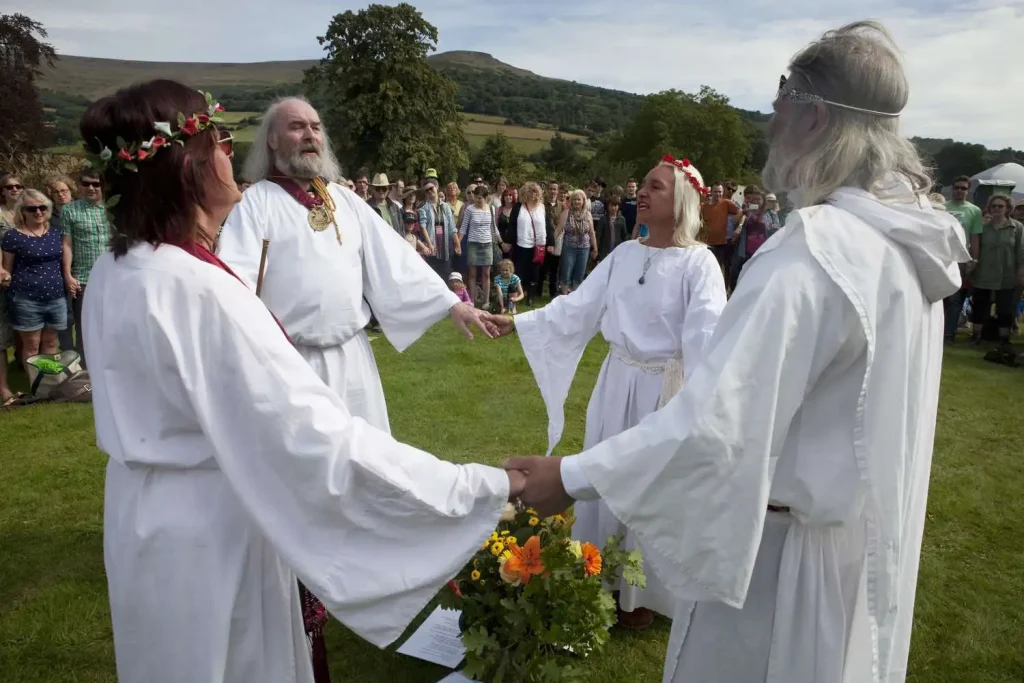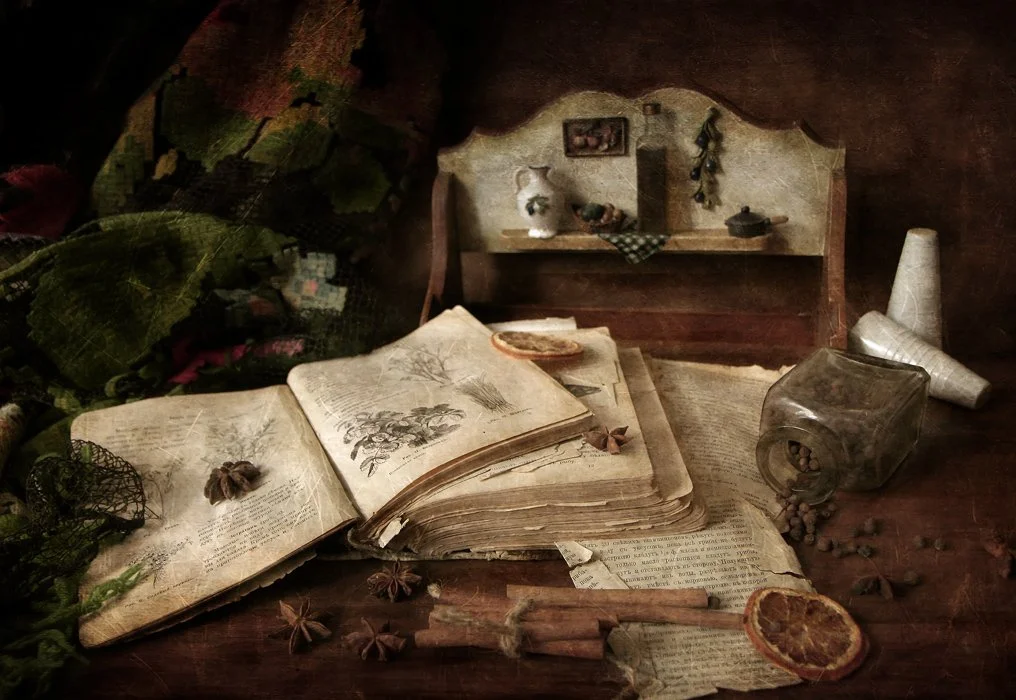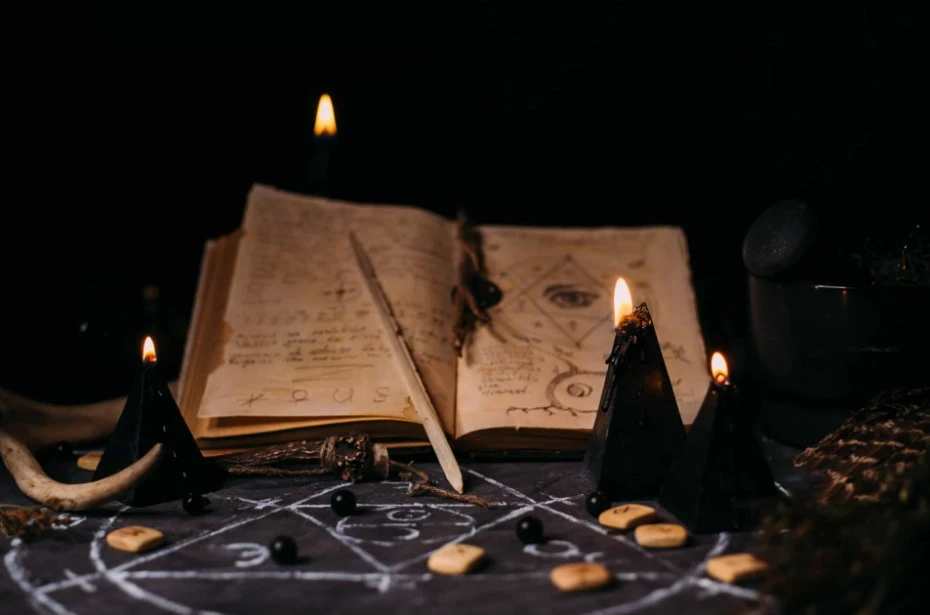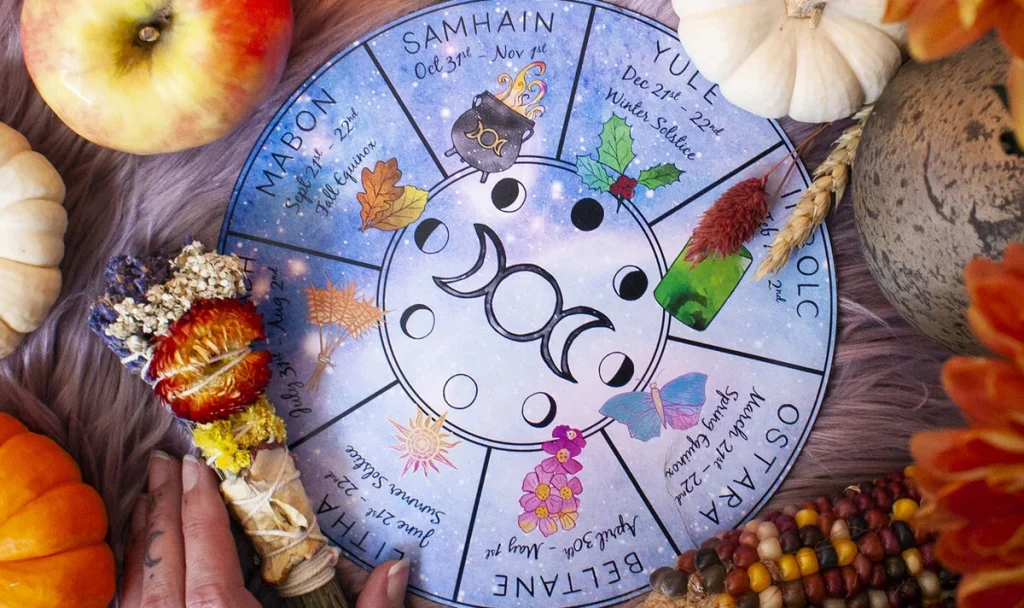Wicca, a modern neo-Pagan religion with a wealth of traditions and practices, is as diverse as its adherents. Embarking on a journey through the many facets of Wicca, one discovers a rich variety of paths, each with its own unique philosophy and ritualistic nuances. Here we’ll explore the different types of Wicca that have evolved over the years, offering a glimpse into the intricacy of this spiritual path.
Key Takeaways
- Wicca is a modern pagan religion with various traditions, each with distinct beliefs and practices.
- Some of the most well-known types of Wicca include Gardnerian, Alexandrian, and Dianic Wicca.
- Eclectic Wicca allows individuals to blend elements from various traditions to create a personalized practice.
- Solitary Wicca is practiced individually, outside of a coven structure, and is often self-taught.
- Understanding the types of Wicca can help practitioners define their own path and connect with others in the community.


Types of Wicca
Here are some of the common types of Wicca:
Gardnerian Wicca
Origins and Structure Gardnerian Wicca was founded in the 1950s by Gerald Gardner, often considered the father of modern Wicca. This tradition emphasizes a structured approach with a degree-based system of advancement through initiation.
Core Beliefs and Practices Gardnerian Wiccans typically worship a dual deity – the God and the Goddess—and adhere to a system of seasonal celebrations known as the Wheel of the Year. Covens are an essential aspect of the tradition, with rituals ideally performed in groups.
Alexandrian Wicca
Origins and Revision Named after its founder, Alex Sanders, Alexandrian Wicca emerged in the 1960s in the UK. While similar to Gardnerian Wicca, it is known for magical practices with a more eclectic and ceremonial bent.
Distinct Features This tradition allows for greater flexibility in rituals and emphasizes the development of psychic abilities and ceremonial magick within a structured coven environment.
Dianic Wicca
The Divine Feminine Focus Dianic Wicca, founded by Zsuzsanna Budapest in the 1970s, centers around the worship of the Goddess exclusively and is often associated with feminist values.
Practices and Community This path is noted for its focus on women’s mysteries, rites of passage, and empowerment. It is typically more open and less hierarchal than other traditions, with a strong sense of sisterhood.
Eclectic Wicca
Personalization of the Craft Eclectic Wicca permits practitioners to incorporate elements from various Wiccan traditions, as well as other spiritual and religious systems, to create a customized practice that suits their beliefs and needs.
Diversity and Freedom With no central authority, Eclectic Wiccans enjoy the freedom to experiment with rituals, deities, and magickal systems, leading to a highly individualized practice.
Solitary Wicca
Independent Practice Solitary Wiccans choose to practice alone, without a coven, often blending various traditions or creating their own rituals based on personal study and intuition.
Self-Initiation and Learning Many Solitary Wiccans are self-initiated and self-taught, utilizing books, online resources, and personal experiences to guide their spiritual path.
Traditional Wicca
Adherence to the Roots Traditional Wicca refers to paths that maintain close practice to the original Gardnerian or Alexandrian forms, with strict adherence to established ritual frameworks and secrecy.
Transmission Through Initiation Practices within traditional Wicca are typically passed down through initiation, with a strong emphasis on lineage and fidelity to the teachings of the founders.


More About Types of Wicca
Wicca is a diverse and decentralized religious movement that encompasses various traditions, each with its own unique beliefs, practices, and rituals.
What defines a tradition within Wicca?
A Wiccan tradition is defined by a set of shared beliefs, practices, rituals, and often a lineage or connection to a founder or originating coven.
How do I choose which type of Wicca is right for me?
Research the various traditions, reflect on your personal beliefs, and consider whether you prefer practicing alone or within a group. Trust your intuition, and don’t be afraid to reach out to local or online Wiccan communities for guidance.
Can I switch between different Wiccan traditions?
Yes, it’s common for practitioners to explore and transition between traditions as they grow in their practice. However, it’s important to approach each tradition with respect and an understanding of its unique practices and beliefs.
How does one become a member of a Wiccan coven?
Becoming a coven member usually involves a period of learning, getting to know the coven members, and ultimately being initiated into the tradition that the coven follows. It’s essential to find a coven that aligns with your beliefs and where you feel a sense of connection.
Are there more types of Wicca than those listed here?
Yes, there are many more types of Wicca, each with its own specific practices and tenets. Some are closely guarded and known only to initiates, while others are more open and have been widely shared in publications and online.


Wicca’s rich and evolving tapestry continues to attract seekers from all walks of life. Understanding the types of Wicca not only provides insight into the multifaceted nature of this spiritual path but also helps individuals navigate the breadth of practices and find their place within the greater Wicca community. Whether through the sacred structure of traditional covens or the freedom of solitary and eclectic paths, the world of Wicca offers a spiritual home to those drawn to its magic and mysticism.

